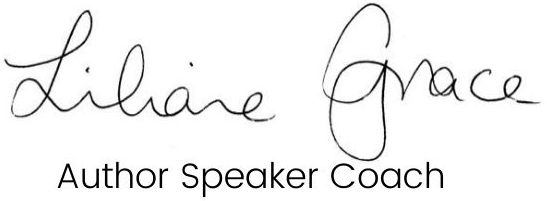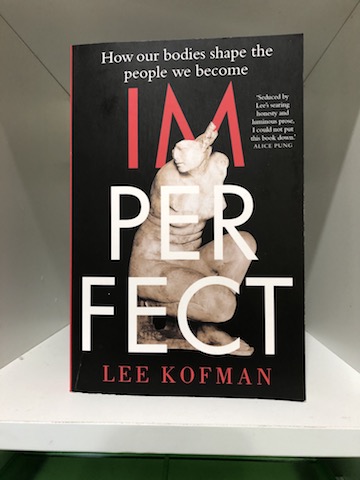 I’ve just finished reading a book called Imperfect – How Our Bodies Shape The People We Become by Lee Kofman.
I’ve just finished reading a book called Imperfect – How Our Bodies Shape The People We Become by Lee Kofman.
Lee was scarred as a result of several major operations when she was a child from injuries sustained in a bus accident and from a defective heart. To begin with, she saw her scars as ‘badges of honour’ but as a young woman in Israel,
whose friends were all hanging out on the beach in bathers, she became extremely self-conscious and spent more and more time ‘covering up’ – both physically and emotionally, in an attempt to protect herself.
Her book explores many forms of physical difference, from scarring to dwarfism to albinism; she interviews those who have been scarred in accidents or born deformed or are simply overweight, and also those who have deliberately modified their bodies. Those stories were a big eye-opener for me! I had no idea the lengths some people go to in order to transform themselves into everything from a pixie to a tiger… seriously!
Lee delves into many cultural and emotional layers but it’s only in the very final paragraph of her book that she arrives at the hidden blessing – please excuse this spoiler!
‘Yes, bodies shape us, but too often I took this idea to the extreme. Whatever was wrong with my life, the fantasy went, had to be because of my scars. But why be cynical about that? By becoming a scapegoat for all my failings, my scars have served me well, protecting my fragile ego, whispering kindly in my ear in the bluest of hours: It’s not you, it’s us…
‘So here it is. As I’m nearing the end of the book, having struggled for so long to figure out where my flesh ends and my self begins, I can finally see my paradox. The fact that my body is imprinted with my childhood misfortunes has not only reduced my confidence but also increased it. I’ve turned out to be both messed-up and resilient on account of my scars. And I suspect you can find many of us, imperfect ones, somewhere in this gap between stories of fragility and stories of strength.’
A couple of things struck me in reading this book (and particularly those final paragraphs):
- I was reminded of Dr Demartini’s comment that ‘life equilibrates us over time’. If we judge someone for something, there’s a reasonable chance that we will eventually do the same thing in order to develop understanding and compassion; if we see something in a one-sided way, over time we will come to see and appreciate the other side, as Lee has done over a period of thirty-plus years. Dr Demartini invites us to tackle those judgements in a focused way over the course of a few hours and deliberately process the issue, to deliberately ‘evolve ourselves’.
I’m not sharing this to promote his workshop; it’s just that the wisdom of his comment struck me quite deeply after reading Lee’s book and tracking her emotional journey over many years. Thirty-plus years of grief or two-to-ten hours of deep introspection…? It’s not easy to replace resentment with love but so much easier on our bodies and emotions in the long run!
- The other thing that struck me was in the title of her book: IMPERFECT. The publisher has highlighted the ‘IM’ in red, and throughout the book Lee refers to those who are scarred or deformed or different as being imperfect. I really dislike that perspective because it creates an unnecessary split between people with those issues and ‘the rest of us’.
And yet who, of the rest of us, feels perfect? I suspect that most of us feel ‘imperfect’ in some way, whether we are hiding a skin rash or fungal toenails (apparently very common) or smiling with a closed mouth to cover crooked or missing teeth, or are physically disproportionate… And that’s only the surface! There are so many other ‘imperfections’ on the inside! We all ’ave em! We are all a bundle of strengths and weaknesses, positives and negatives, beauty and ugliness, and to mark some people out as imperfect because of those differences is, to me, missing the point.
The way I see it, that combination of light and dark is actually what makes us all perfect because it’s our ugliness that drives our growth. We have lovely traits that allow us to shine and contribute, and we have uncomfortable traits that call us to grow.
I’ve never liked the phrase, ‘we’re not perfect’ because I think we are. We just need to change the definition of perfect from ‘flawless’ to ‘whole’. And in that case, every single one of us is perfect.
So I prefer to read the title of Lee’s book as ‘I’M PERFECT’.
You are too.


Recent Comments